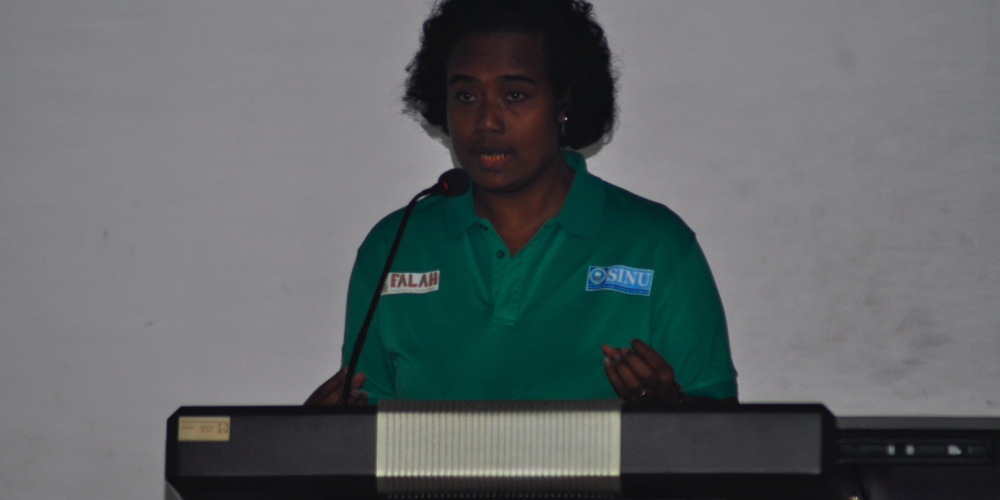A Solomon Islands academic has underscored the critical role of collaboration in advancing research.
Dr. Mary Tahi made this point during her presentation at the Family Farming, Lifestyle, and Health (FALAH) seminar held at the Solomon Islands National University (SINU) Department of Fisheries Studies Hall at Ranadi Campus yesterday.
Dr. Tahi shared her experience of presenting her mangrove research thesis at the University of Graz in Europe, where she met Heide K. Bruckner, a researcher interested in collaborating on mangrove studies.
“When I presented my mangrove research, Heidi expressed interest in collaborating. This highlights how vital partnerships with other universities are. While we may have the knowledge and skills to conduct research, funding is often the driving force behind progress. Through this collaboration, we combined our expertise and secured resources,” said Dr. Tahi.
Following their initial discussions, Heide traveled to Marovo Lagoon, Dr. Tahi’s home region and a key biodiversity hotspot for mangroves, to contribute to the study. Their joint efforts resulted in research papers, which are now published and available online.
Dr. Tahi also emphasized that collaboration attracts funding, which enables large-scale research.
“Funding is essential for meaningful studies. Through our partnership, we secured support for the Modern Carbon Mangrove project, which focuses on co-producing social and ecological knowledge for sustainable food livelihoods in the Pacific,” she said.
The project, running from 2024 to 2027, involves collaborations between the University of Graz, the University of Papua New Guinea, and the Solomon Islands National University (SINU).
Case studies will be conducted in Malaita Province (Langa Langa Lagoon), Guadalcanal (Marau), and Western Province (Marovo Lagoon).
Dr. Tahi added that the project will not only involve academic staff but also engage SINU students.
“We plan to include bachelor’s students, giving them hands-on experience in mangrove and ecological assessments,” she said.
This collaboration was facilitated by the FALAH Project, showcasing how international and local partnerships can advance research and education in Solomon Islands.
By LACHLAN SHYVES EDDIE
Solomon Star, Honiara









